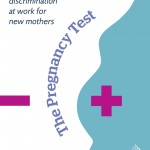- Nick Elvin
 The sacking, bullying and sidelining of expectant mothers remains commonplace, despite changes to the law 40 years ago to protect them from ill-treatment at work, according to a new report from the TUC.
The sacking, bullying and sidelining of expectant mothers remains commonplace, despite changes to the law 40 years ago to protect them from ill-treatment at work, according to a new report from the TUC.
The Pregnancy Test: Ending Discrimination at Work for New Mothers report says that although the law is on the side of pregnant women, many feel shunned as soon as they share their impending baby news with colleagues.
It adds that poor employer attitudes towards mums-to-be can be seen from the rise in the number of cases taken to employment tribunal, as during the recession, complaints involving pregnant women went up by a fifth, with more than 9,000 women taking their employers to a tribunal in the five years from 2008 to 2013.
However, the report goes on to say, few mothers with newborns have the stamina to embark on a lengthy legal battle, while the cost of a case (£1,200 since tribunal fees were introduced in July 2013) also puts many women off, especially those on statutory maternity pay of £138 a week.
Around a quarter of women don’t return to work after maternity leave, and one in six of the mums who do go back change jobs because their employer won’t allow them to work reduced or flexible hours, the report adds. Those who go into part-time work earn on average a third less an hour than the average hourly rate for full-time men, and two in five part-time women earn less than the living wage.
The Pregnancy Test also lists the ten most common complaints against employers, including being sacked for being pregnant; receiving unpleasant comments and negative reactions to their pregnancy announcements; being prevented from attending ante-natal appointments, and being given dangerous or risky tasks. Other concerns included being overlooked for promotion or training, disciplined for pregnancy-related sickness absence, or denied the chance to work flexibly.
Commenting on the report, TUC general secretary Frances O’Grady said: “The law might have changed 40 years ago, but the way many employers behave when they discover an employee is pregnant suggests they are stuck in a 1970s time warp – back to an age when starting a family meant the end of paid work for women.
“This report shows that for many women what should be one of the happiest times of their lives soon becomes full of anxiety and stress – one where bullying, harassment and ill-treatment in the workplace is an unacceptably common experience.
“More needs to be done to drag old-fashioned employers into the 21st Century so that mothers who work are as valued by their bosses as working fathers.
“The Government could help by raising statutory pay for parental leave from its miserly rate of £138 a week. This would encourage more dads to take time out of the workplace and help challenge the stereotypes about working mothers.
“Stronger rights to flexible working are crucial too, to ensure that both parents are able to advance their careers and achieve a better balance between their busy work and home lives.”

 Subscribe to RSS
Subscribe to RSS

 Print
Print Email
Email
















